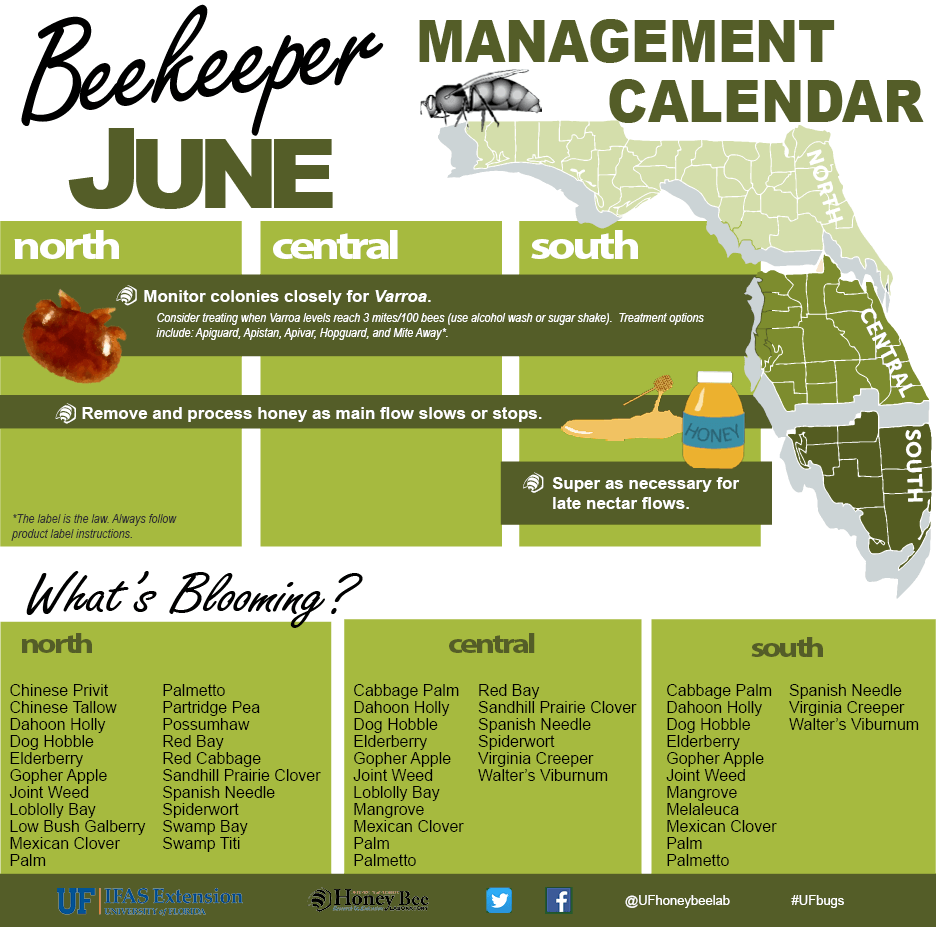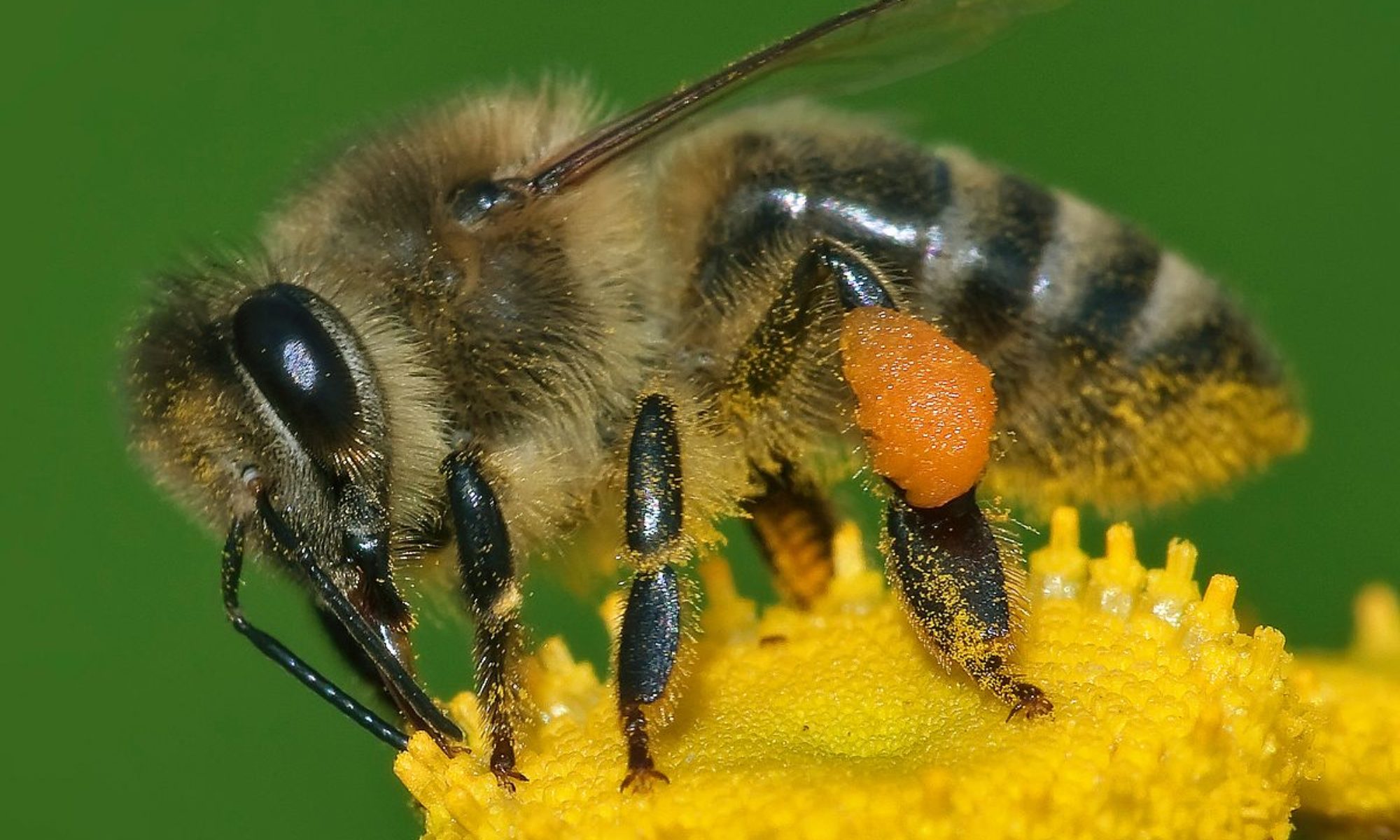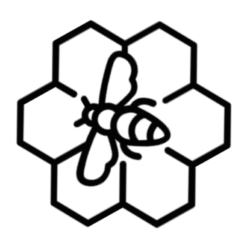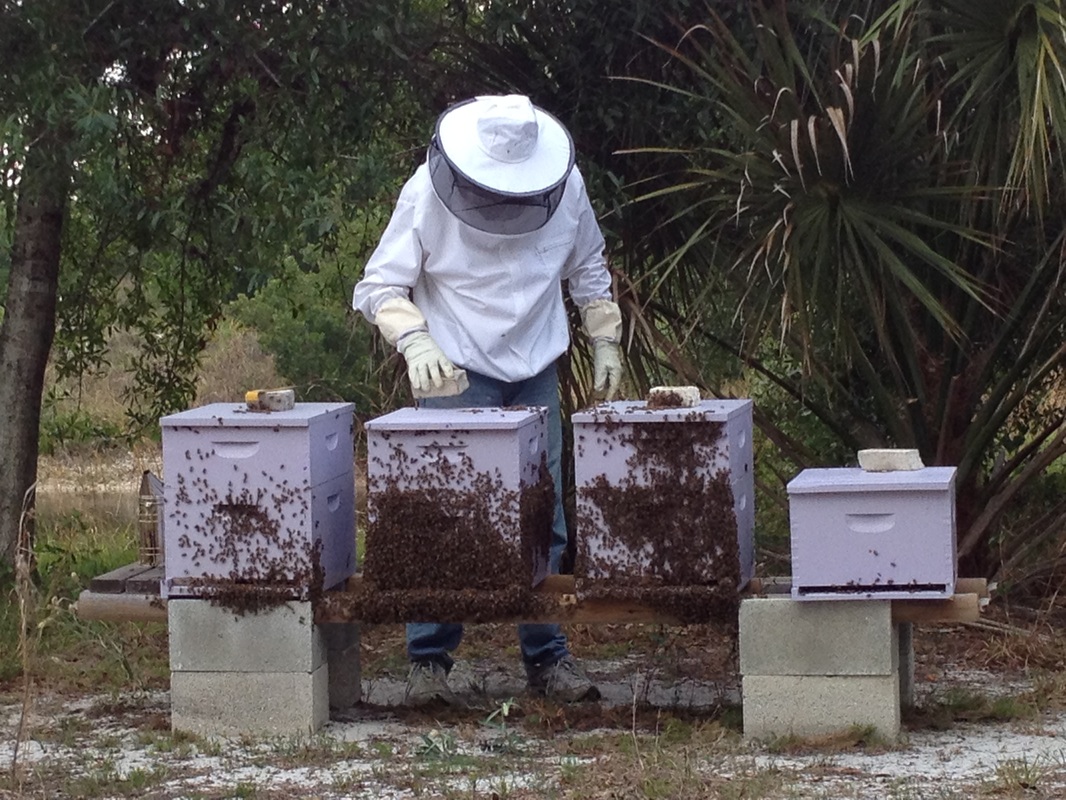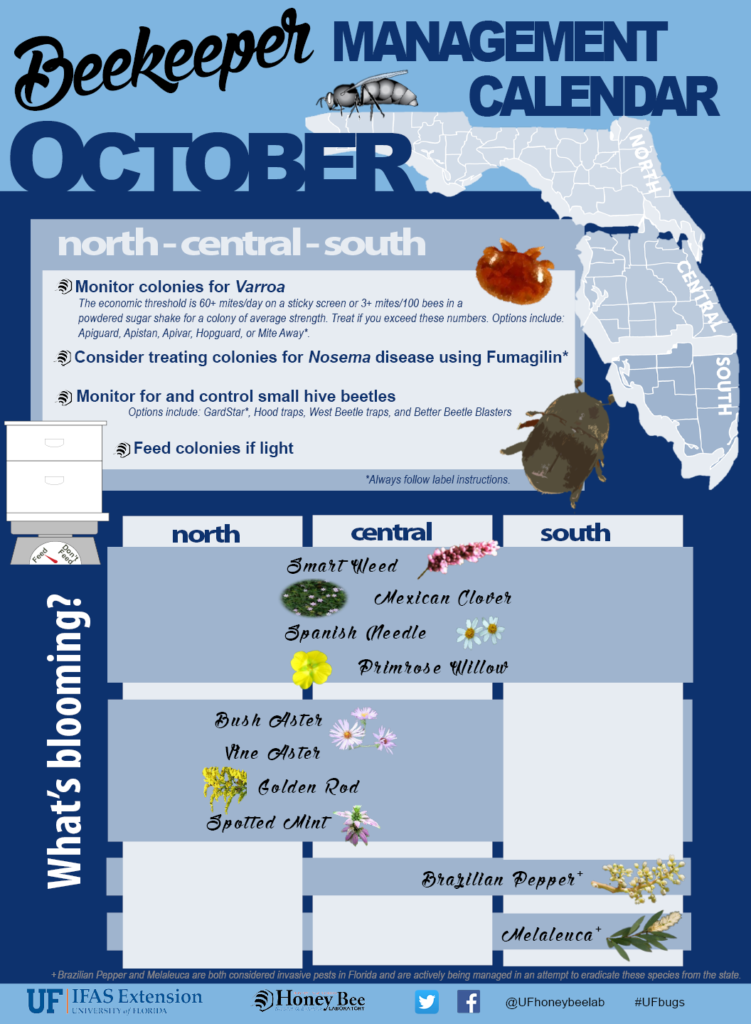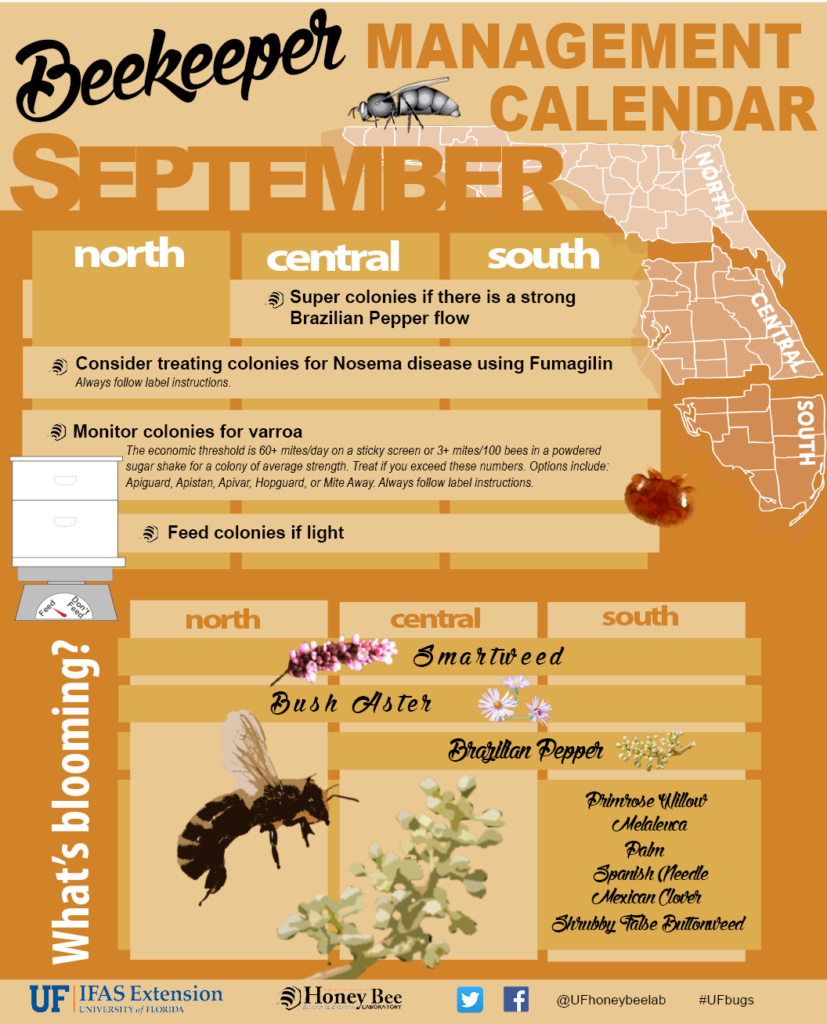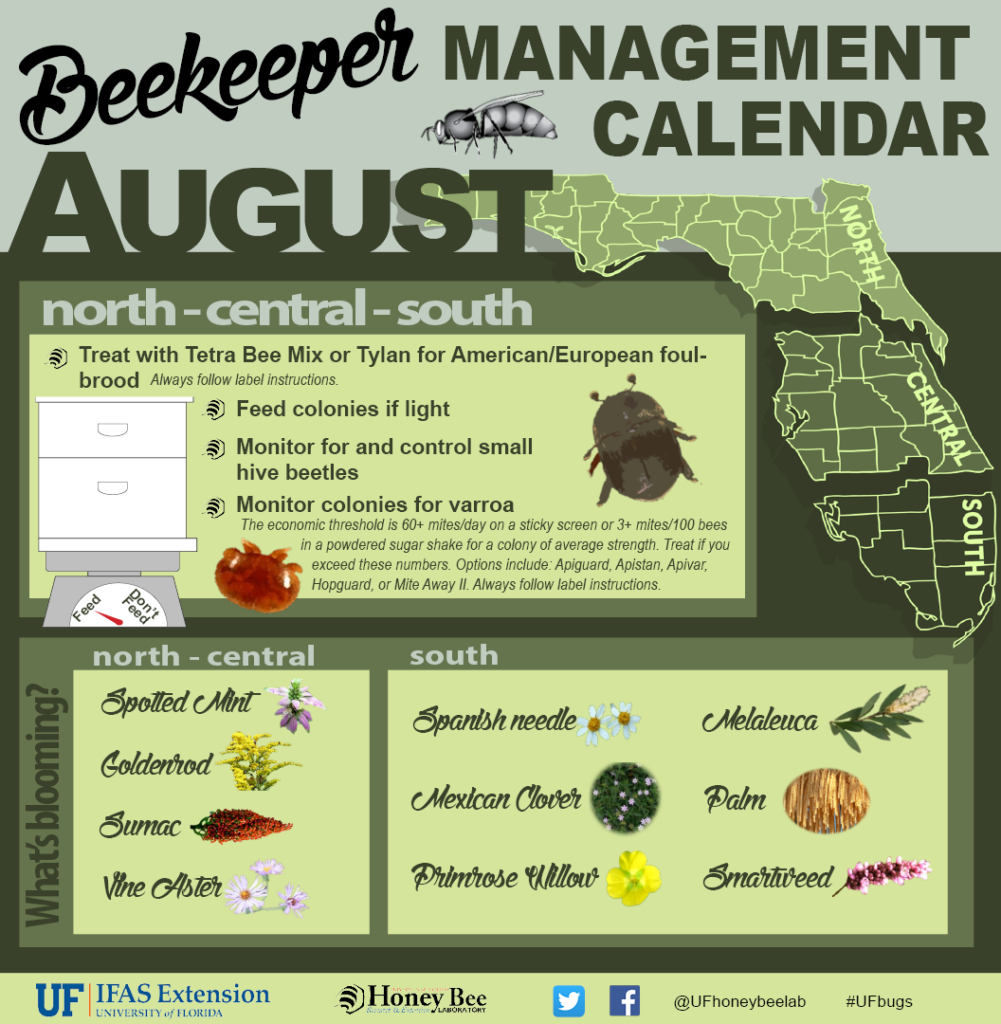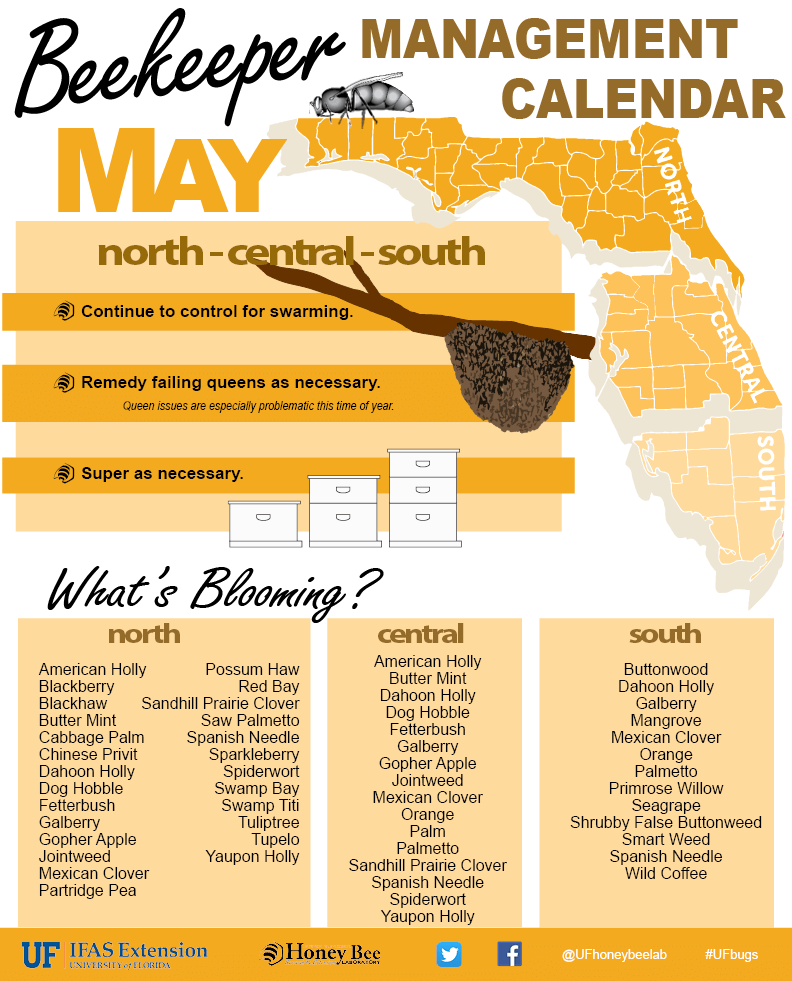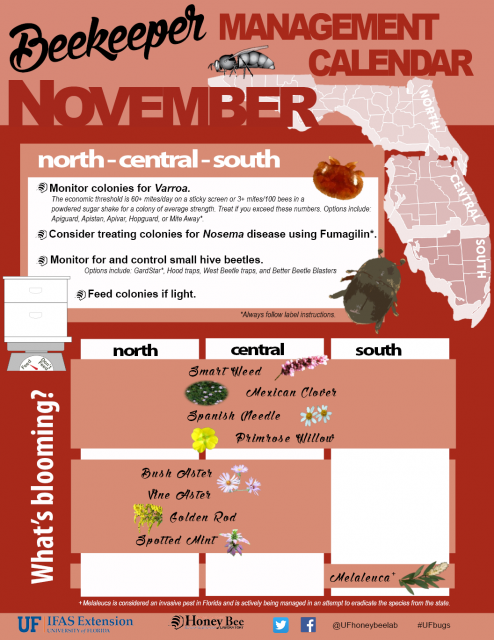
Beekeeper Best Management Practices [BMPs] | October
Beekeeper Best Management Practices [BMPs] | September
Beekeeper Best Management Practices [BMPs] | August
Beekeeper Best Management Practices [BMPs] | July
Beekeeper Best Management Practices [BMPs] | June
Beekeeper Best Management Practices [BMPs] | May
What is an Apiary?
An Apiary is not where the apes hang out ;-), but rather a formal name for a bee farm or location where a beekeeper keeps their bee hives. The base of the word comes from the Latin word “apis” meaning “bee”, leading to “apiarium” or “beehouse” and eventually “apiary“, according to Wikipedia. We just call it the Bee Farm.
Apiaries come in all sizes and provide different services with their honey bee colonies and locations range from urban to rural.
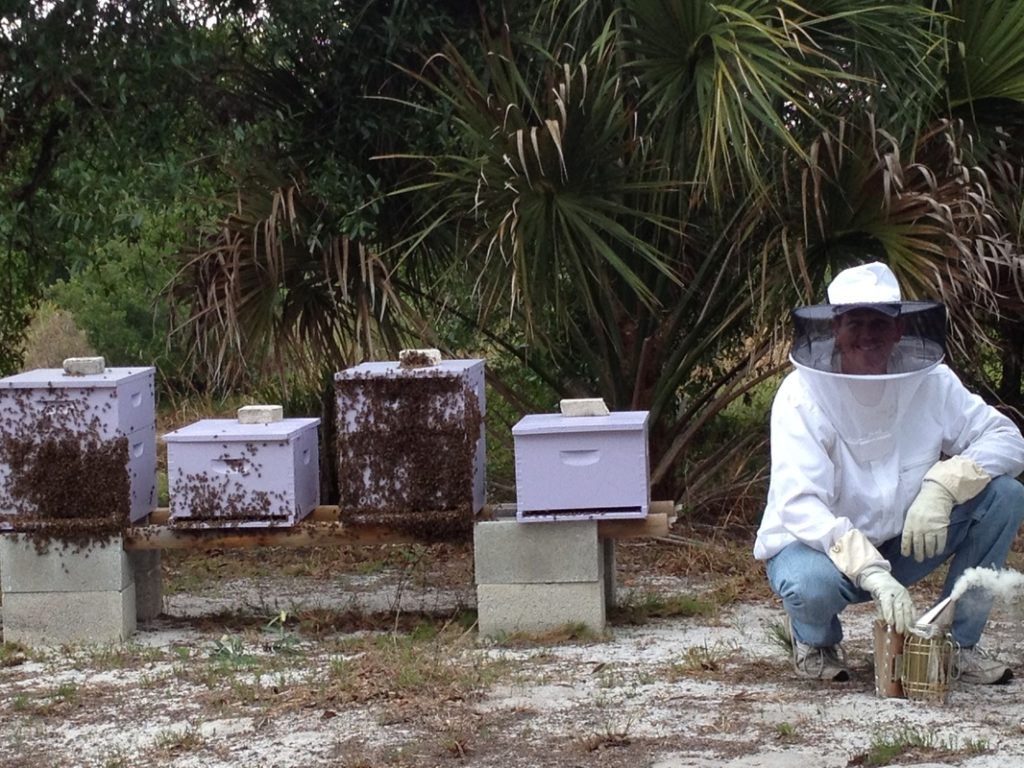
A beekeeper uses the apiary to raise bees:
- to sell to other beekeepers,
- to pollinate crops at farms locally or nationwide,
- to produce honey and other hive products, like pollen, propolis, royal jelly or beeswax,
- to help study the genetics, pests or behaviors of the honey bees in the area,
- to teach beekeeping to beginners
- or simply to help the environment and protect the bees from the rapid development of our lands.
In Florida, the Florida Department of Agricultural and Consumer Sciences (FDACS) requires an apiary and it’s beekeepers to register and be inspected annually. The Division of Apiaries handles this in the State of Florida.
Q. Are Honey Bees on the Decline?
In 1950, in the United States, there were approximately 5.5 million colonies of honey bees.
Now in 2017, there are around 2.5 million. Loss of habitat, change in agricultural practices, changing pest pressures and other factors have contributed to this decline.
In 2006, what is known as CCD (colony collapse disorder) came on the scene. CCD was so named because of the unexplained dying off of honey bee colonies, even though they had plenty of stores of honey and pollen. Because of CCD, winter losses among beekeepers have been higher than normal. Some possible causes were thought to be the following: varroa mites, diseases, pesticides, GMOs (genetically modified organisms), and commercial and unnatural beekeeping practices.
It can be challenging keeping bees in the 21st century. Beekeepers managing colonies in the US must cope with a myriad of issues. It takes knowledge, skill, and perseverance to overcome these challenges and be a successful beekeeper.
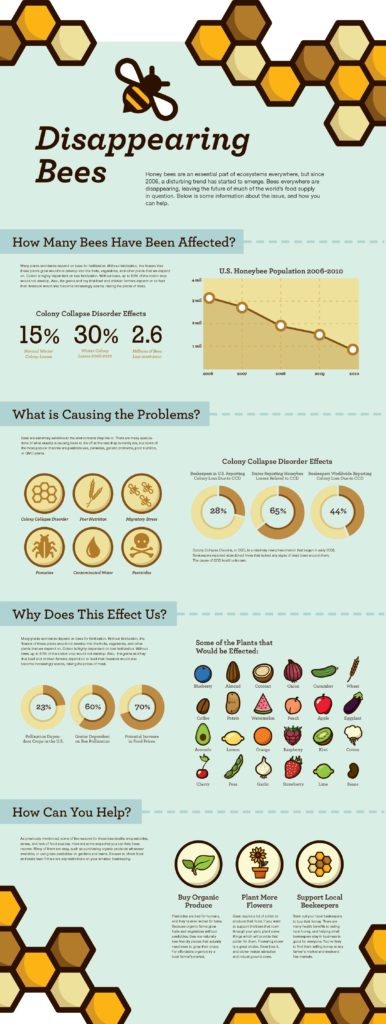
Beekeeper Best Management Practices [BMPs] | June
